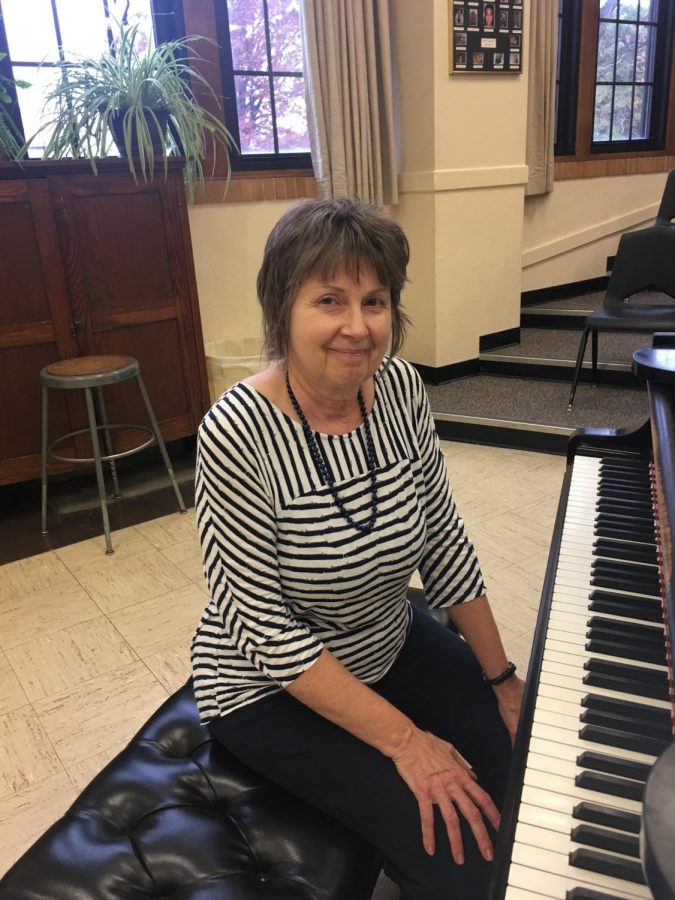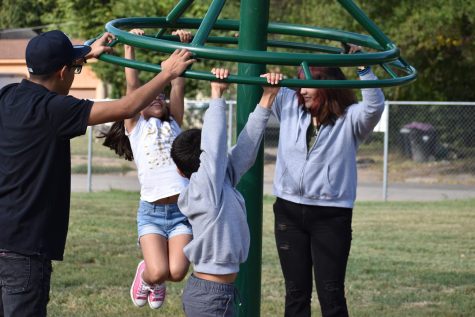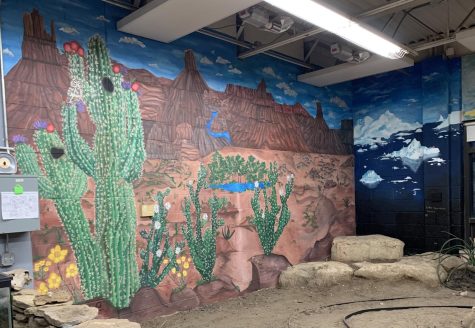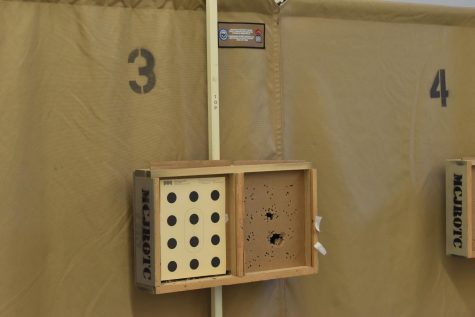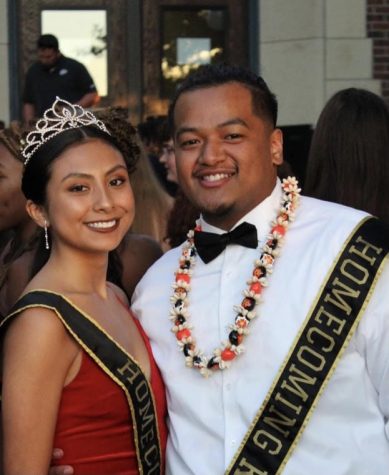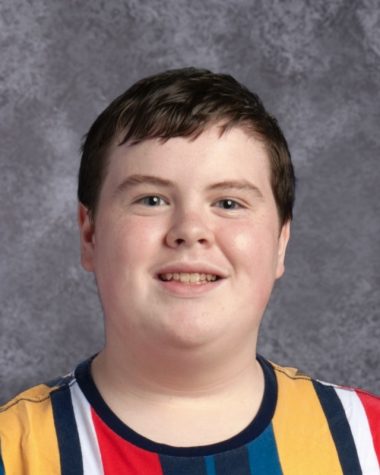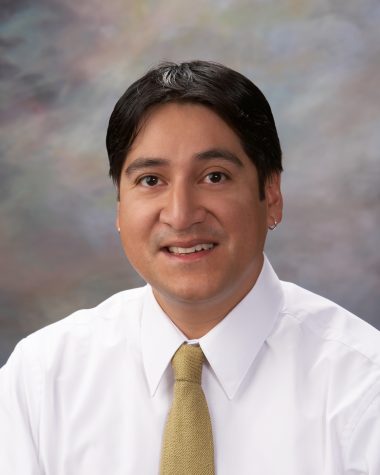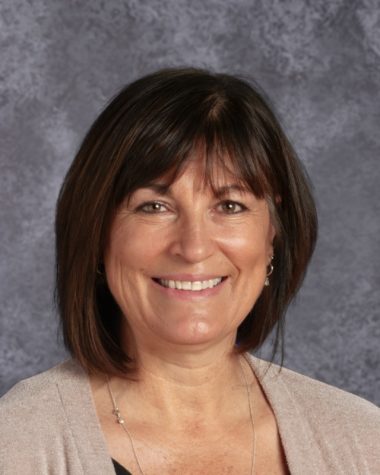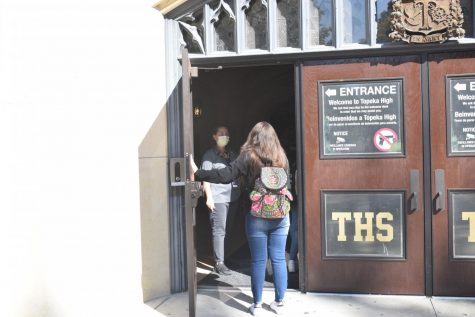Q&A with Donna Osborne
Choir students may be acquainted with soft spoken accompanist, Donna Osborne–but despite her years here, there are still many interesting things the average Trojan may not know about her. Ms. Osborne, though most call her Donna, is currently in her ninth year at Topeka High.
- How long have you been playing the piano, solo and/or as accompaniment?
- I started piano lessons at 8 years old, and I’ve accompanied since my teen years. Most of my life I’ve been involved with music.
- Why did you decide to take up piano?
- I don’t know. I think that was a God thing.. I was asked by my mother what I wanted for my eighth birthday, and out of the blue I said piano. I don’t know where that came from.
Q.Have you always wanted to play piano, or be a musician in general, or was there something else you wanted to pursue?
- I was always involved with music at an early age, but in high school I was a part of the FTA (Future Teachers of America) and I was set on becoming an English teacher. But as I thought about it more, and I saw my parents continue to pay for music lessons, I realized it would be stupid not to use my gift and ability.
- Were you a music major in college?
- Yes, I was a music education major at first, but I didn’t enjoy almost having to apologize to people, to kids, that music is worth studying and learning about. I switched my degree to a BA in organ performance which enables me to teach in private schools and colleges, but not public schools. I also have an MM in church music.
- What other school’s have you taught at or accompanied for?
- Well I’m from the East Coast originally, so I taught at Pinebrook Junior College in Pennsylvania. We lived overseas for six years in Davao City in the Philippines. There I taught at the Pag-Asa School of Theology and at Faith Academy. On our return, I taught at Arcadia Christian School in California. Here I did after-school piano for Topeka Collegiate students, a few years at Royal Valley, and here at THS.
- You’ve clearly seen a variety of schools and people. What have you learned from that experience?
- Through the years I’ve seen that music takes on different shades of importance according to the culture. The Philippines provided an interesting experience because there, people who had pianos and could afford an American teacher looked at it as more of a status symbol. They would come to me for lessons, but wouldn’t practice, and seemed to expect me to open their heads, pour in the knowledge, and then go home. But I see that more and more here now.
If kids take lessons, it’s often because the parents want something for their kids to do. It’s all fun at first with the modern keyboards which have all the bells and whistles, but their interest wanes. They’re not willing to put in the work and learn the basics. They’re used to being entertained by their phones, always being plugged in. So they lose interest in taking lessons. It’s strange because now, I’m paid to accompany in a school, whereas when I was in school myself, the student was the accompanist. We had students at that caliber, that skill level, and it was a given that schools had such students. Now it’s rare. Kids who can play that well stop studying and have other interests. Same thing with churches. The attendance is lower, the organ isn’t used as much. People use CD tracks and recordings which don’t require much skill.
- So are you saying that the “art” of piano and music in general is fading?
- Well I think we’ll always have music, but the trends as to what kind and the purpose of it varies from generation to generation. I think with all the plugins, all the phones and whatnot, entertainment can be had all the time. Kids don’t want to go to “serious” concerts as much, or join music organizations. Now you can be satisfied with YouTube, whenever you want. It’s just different.
Q.What is something you would tell your younger self at the start of your career?
- Probably not to go into music! (laughs.) With all the students I’ve had, I’d often say you can do music all your life. Any kind of music, there’s always going to be an outlet. But if you want to have an income, it probably won’t be through music. You need another profession or job that’ll feed you and your family.
Q.So do you regret going into this field?
- Oh no, because I hit music at a good time in my life. It was open, I had many opportunities to step into, which is what I did.. I never went for a doctorate, because I already had so much going on with the community that I didn’t have time or the need for it. I had a community choir, three church choirs, a touring choir, teaching privately, being on the staff of an opera company, so I was quite busy. Those were the times.
Q.What is your favorite piece or style of music to play, and why?
- In a church setting I enjoy doing the hymns, listening to the way the organ can enhance the singing, bringing it all to life. The organ I play at First Methodist Church can really bring out all the different colors. And it’s always rewarding to play with a very musical conductor. Steve Eubank is that way. I still have the privilege of working with him at the church. It’s amazing, being morphed into that atmosphere, being pulled into a very musical performance.



